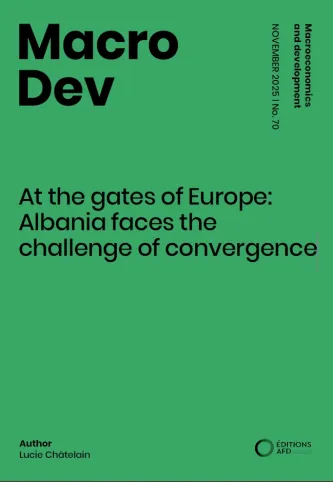Share the page
At the gates of Europe: Albania faces the challenge of convergence
Published on

After 45 years of isolation under a totalitarian communist regime headed by the Party of Labor of Albania (1944-1991), in the early 1990s, Albania engaged in a profound transition marked by considerable political and economic instability. However, for more than a decade now, the country has benefited from renewed stability, driven by major reforms addressing corruption, governance and justice, led by the Socialist Party, which has been in power since 2013. These major structural transformations have benefited from a stable and resilient macroeconomic framework since 2019, despite the succession of external shocks. Albania has thus maintained dynamic growth, supported by moderate inflation. On the fiscal front, public finances have shown a remarkable performance, enabling a significant reduction in the deficit and a substantial decrease in public debt. At the same time, the consolidation of the banking sector has continued, while the country’s external position has been strengthened: the current account balance has improved since 2023, supported by growth in tourism revenues, high levels of diaspora remittances, and increased inflows of foreign direct investment.
Useful Information
-
Authors
-
Lucie Châtelain
-
Edition
-
70
-
Number of pages
-
24
-
ISSN
-
2116-4363
-
Collection
-
Macrodev
-
Languages
-
Anglais
-
Other languages
